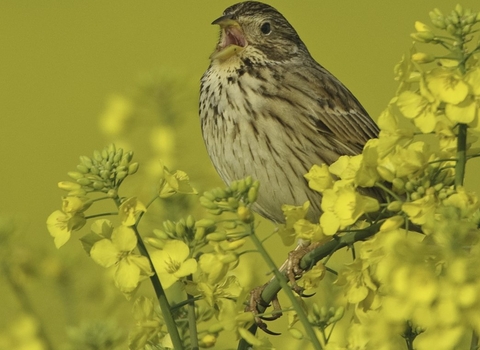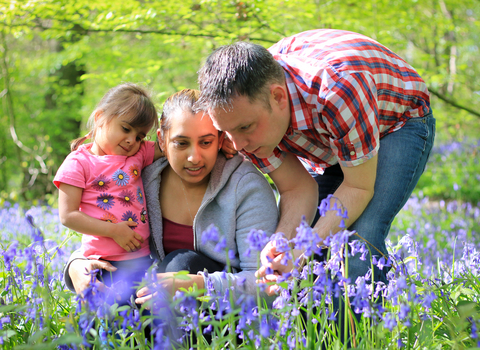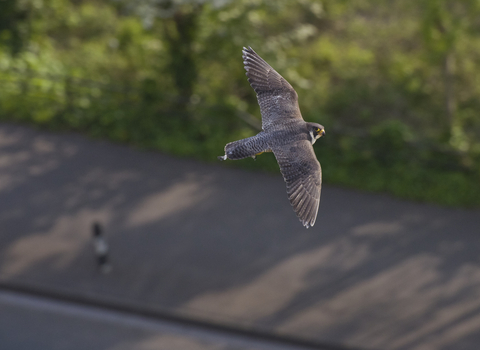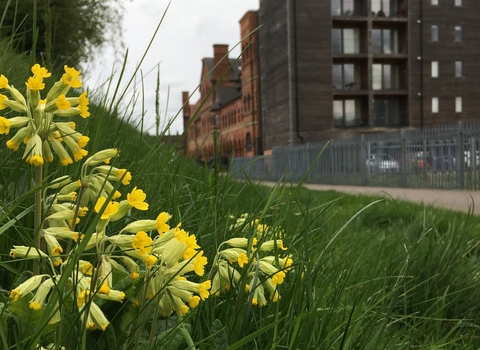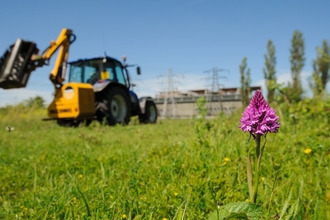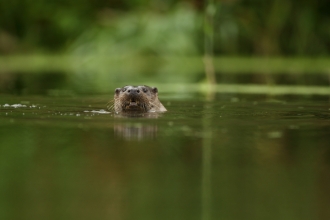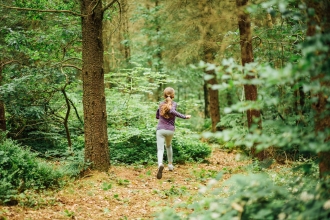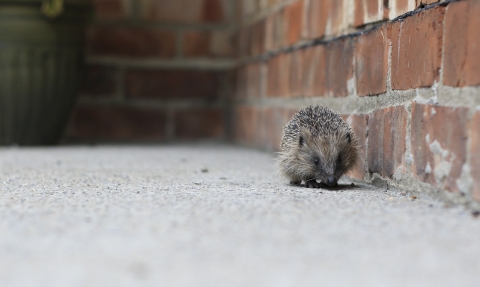
(c) Tom Marshall
Rewild the planning system
Our vision for a wilder planning system
Our footprints have weighed heavy upon the natural world and future extensions to the human footprint, through development, must be planned with nature in mind.
Planning should be progressive and look at how it affects not just the individual plot where the building will take place, but the impacts of each and every development on the wider environment; alone and taken together. Nature doesn’t and can’t live in a box.
What do we want to see?
We support The Wildlife Trusts call for the creation of a new designation – the Wildbelt.
The Wildlife Trusts want to work with society, including developers, planners and politicians, to improve and create new Nature Recovery Networks linking vitally important environmental areas, not just for wildlife but for humanity as well. The Wildbelt will be made up of these areas where nature can recover.
Nature doesn’t and can’t live in a box
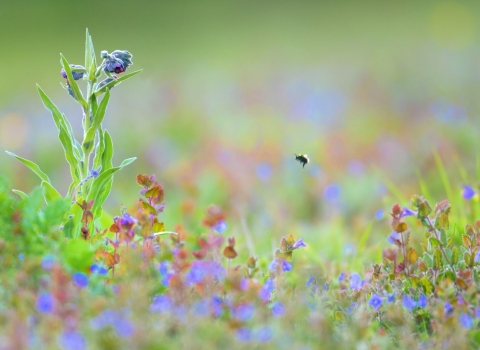
Jon Hawkins
We need nature
"Our economies, livelihoods and wellbeing all rely on Nature. We rely on Nature to provide us with food, water and shelter; to regulate our climate and control disease; to maintain nutrient cycles and oxygen production; and to provide us with spiritual fulfilment and opportunities for recreation, among many other examples. Put simply: without Nature, there would be no life.”
- (The Dasgupta Review into the Economics of Biodiversity, Interim Report, April 2020).
Government planning reforms - our chance for change
The Government is again planning to reform the planning system in England. This new system will define and shape communities and must include room for our Nature Recovery Network.
The Wildlife Trusts believe the system in England does need some reform and we would love to be able to make meaningful, long-term changes to how the places and spaces around the country are designed and built with nature in mind. But the proposed reforms just won’t cut it.
Despite a positive framing and some encouraging words, our assessment (borne out by many other nature organisations and other colleagues) is that the Government's proposals will make a Wilder Future impossible. This will fail to see us reach a target of 30 per cent of nature recovering by 2030. We have three major concerns with the proposals:
How do we rewild the planning system?
At The Wildlife Trust for Lancashire, Manchester and North Merseyside much of our work over the years has been repairing the mess that past industry has left behind. We have restored carbon-storing peatlands where peat extraction once scarred the landscape; wetlands, woodlands and flower-rich grasslands where coal was king, or sand and gravel were quarried; and bogs where agriculture drained fields, leading to local extinctions of insects and birds.
We have proved that, with years of care, these industrial sites can be restored and nature can return slowly over decades, but we can’t let still more of that devastation of wild creatures and plants happen in the 21st century. So we are looking for modern answers to how development should progress, not 19th century answers involving building for the short-term and then leaving society to deal with the consequences ever afterwards.
We want reasonable arguments for development and a voice in the decision-making process, not populist myths about scything through 'red tape'.
It’s easy to demand more house-building and blame newts for getting in the way of progress, but is this entirely true? The reason half a million houses haven’t been built, despite having planning permission, is down to the structure of the UK’s housing market, not a great crested newt found in a nearby pond.
And it certainly cannot be business as usual. As we are learning to our cost, if you kick the environment it can kick back harder. This is a global problem so we all need to make a difference.
Development of homes, roads, quarries, railways and businesses must not cut through hugely important habitats or we will lose threatened species like willow tits, water voles and hedgehogs from our towns and countryside.
You can help us make a difference
The Wildlife Trusts are asking people to join in the consultation to discuss the Government’s planning reforms.
Our Chief Executive in the North West, Anne Selby, said:
“We need people who love nature and those who have re-engaged with nature during the lockdown to support our campaign. We need to stop the attacks on the diversity of our wildlife and ensure that any planning includes room for nature to recover, not just here but in networks across the United Kingdom.”
So we all need to get the message across that we will not accept further destruction of vital nature in the North West because of sweeping reforms that favour unscrupulous developers, devalue the roles of local planners and councillors, and penalise those who take the trouble to leave nature in a better position than when they found it.
We demand a voice in a planning system that recognises the interconnectedness of the natural environment. Nature’s recovery must not be further impeded by yet more short-termism: we’ve seen the consequences of a century and more of that approach. Planning needs to have nature in mind. Our wildlife depends on it and our future depends on it.

